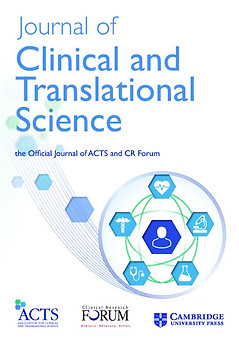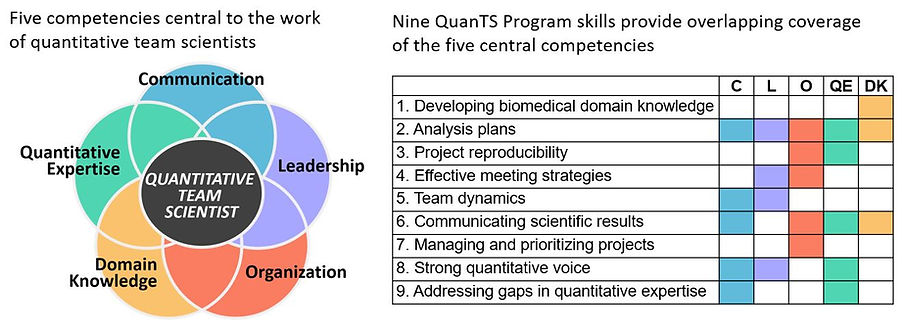Funding and Background
Funding
The QuanTS Program is funded by an R25 grant from the NIH National Institute of General Medical Sciences (grant number R25GM155474).
It is part of the Innovative Programs to Enhance Research Training (IPERT) program which supports "creative and innovative research educational activities designed to complement and/or enhance the training of a workforce to meet the nation’s biomedical research needs." To learn more about the IPERT program, click here.
Background
Two key studies laid the groundwork for the QuanTS Program.
Pomann et al., 2021
Methods for training collaborative
biostatisticians

Slade et al., 2023
Essential team science skills for biostatisticians on collaborative research teams

Pomann et al. (2021) proposed 16 skills considered to be essential to the work of collaborative biostatisticians. In a 2023 nationwide survey (Slade et al., 2023), 343 quantitative scientists rated the importance of these 16 collaborative skills in their current work and the amount of training that they received in each skill during graduate school. Based on these pilot data, the nine skills of focus for the QuanTS Program were selected -- skills that were deemed most important with the lowest coverage in graduate programs.
The QuanTS Program's nine skills of focus provide overlapping coverage of five key competencies considered to be essential to the work of quantitative team scientists: communication, leadership, organization, quantitative expertise, and domain knowledge.

To support the growing demand for data-intensive research, the QuanTS Program addresses the critical need for training programs that equip quantitative scientists with the collaborative skills necessary to be an effective team scientist.
